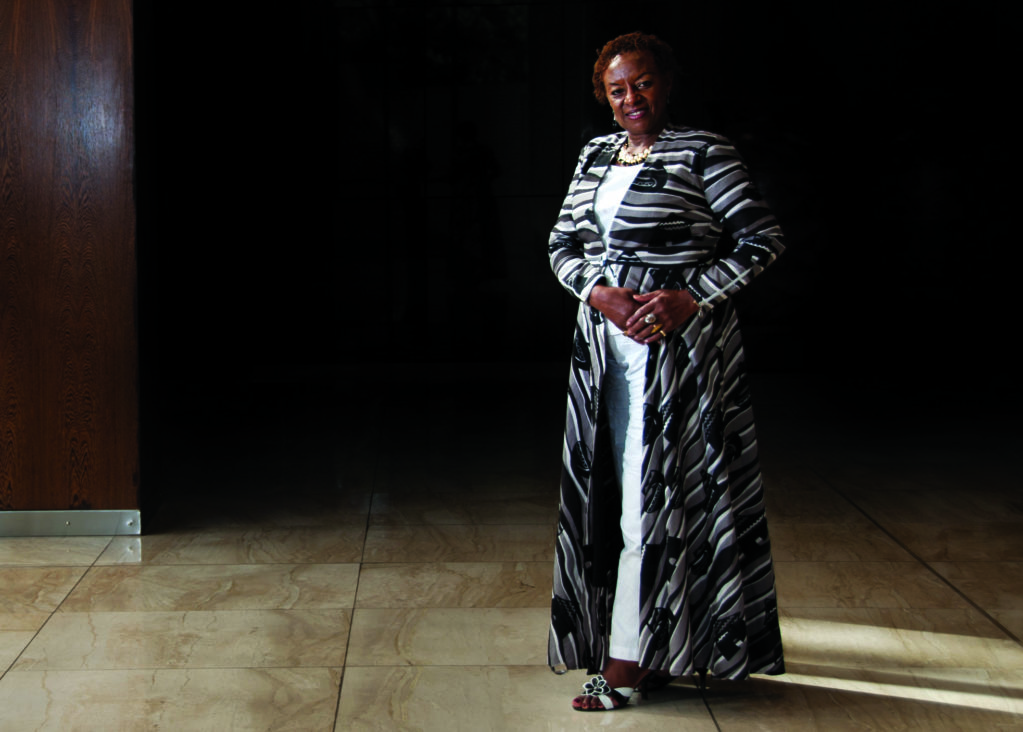Jennifer Riria’s phone rings without respite, and there is an endless stream of visitors in her sprawling office at Mucai Drive in Nairobi. She patiently attends to each request, every impossible query, from an enormous desk laden with piles of paperwork and gleaming trophies, the most recent Ernst & Young’s Entrepreneur of the Year Award. Her room is abuzz, and just watching her work is a fitting prelude to the interview.
On the walls are prized portraits and photographs, there is one of her with Muhammad Yunus, the Bangladeshi microfinance pioneer and Nobel peace prize laureate. On another wall is a sketch charting Riria’s career graph – 24 years as the chief executive of Kenya Women Holding Group (KWH).
A quarter of a century is a long time, and particularly for Riria, as it has meant resurrecting the company from scratch – to the 900,000 members it has today. In 1981, it was founded as the Kenya Women Finance Trust (KWFT) by a motley crew of female lawyers, entrepreneurs and bankers who worked part-time with the singular objective of opening up banking for women in Kenya.
When Riria took over the ailing KWFT microfinance institution in 1991, it had debts of KES2 million (about $23,000). For Riria, who was a gender specialist and university lecturer who also worked for the United Nations, the financial services sector was new territory. But she was undaunted.

Loading...
The banks did not want to lend to women at the time, especially if they were poor. When she approached them, they said: “Do you want the women to crowd our banks with their baskets?”
“I came in young, bold and fearless, not knowing I was in for a rude shock,” says Riria. One of the first things she did was put in place good governance structures, systems and policies to make it a regulated, deposit-taking microfinance institution. Her mission was clear: to help women create wealth and transform the way the world worked for them and their families. Taking the campaign to small towns and villages, the company grew its portfolio of members, handing women small loans to start businesses.
“Kenya Women Holding is not about making money. It’s about taking care of women’s interests, and listening to them. If the women said they didn’t have the time for business because they were spending all their time fetching water, we would offer them a water tank loan. We would collaborate with the private sector, negotiate the lowest rates and provide them with the tanks. The women would say ‘our children are coughing all the time so we can’t work’. We would find the children were sitting around kerosene lanterns and inhaling the smoke. So we would address the issue by giving the families solar lamps, but on loan. Nothing was free,” says Riria.
Gradually, KWH scaled up its operations and leveraged with the private sector.
Riria’s unbridled efforts have not been in vain.
“Today, you are looking at the largest microfinance institution in Africa serving women. The ultimate success is that Kenya Women spearheaded the opening up of the banking force for women,” she says.
Riria is currently chair of Women’s World Banking, which sees her traveling often. Kenya Women Holding has 236 offices across Kenya and a portfolio of products and services for female entrepreneurs.
“Today, it is not an institution to joke with. We are recognized locally and internationally and have won so many awards,” says Riria, who now wants to take the model to the rest of Africa. But she is faced with a new challenge.
“What has crossed my mind in the last year or two is that the fabric of the family is breaking up. We can’t stop empowering women, but we do need to innovatively think of how we can balance that with their business, work and family. There is a perception now that we have overdone it at the expense of the boys and men. We have started bringing the men around because they are becoming couch potatoes.”
When we meet her in Johannesburg in October at a conference, Riria is as exuberant as ever, and says KWH is now opening up 25% of ownership to its women members, making them more accountable. “Don’t exclude women; include them in Africa’s growth,” she said at the forum. Their time
is now.
Loading...
